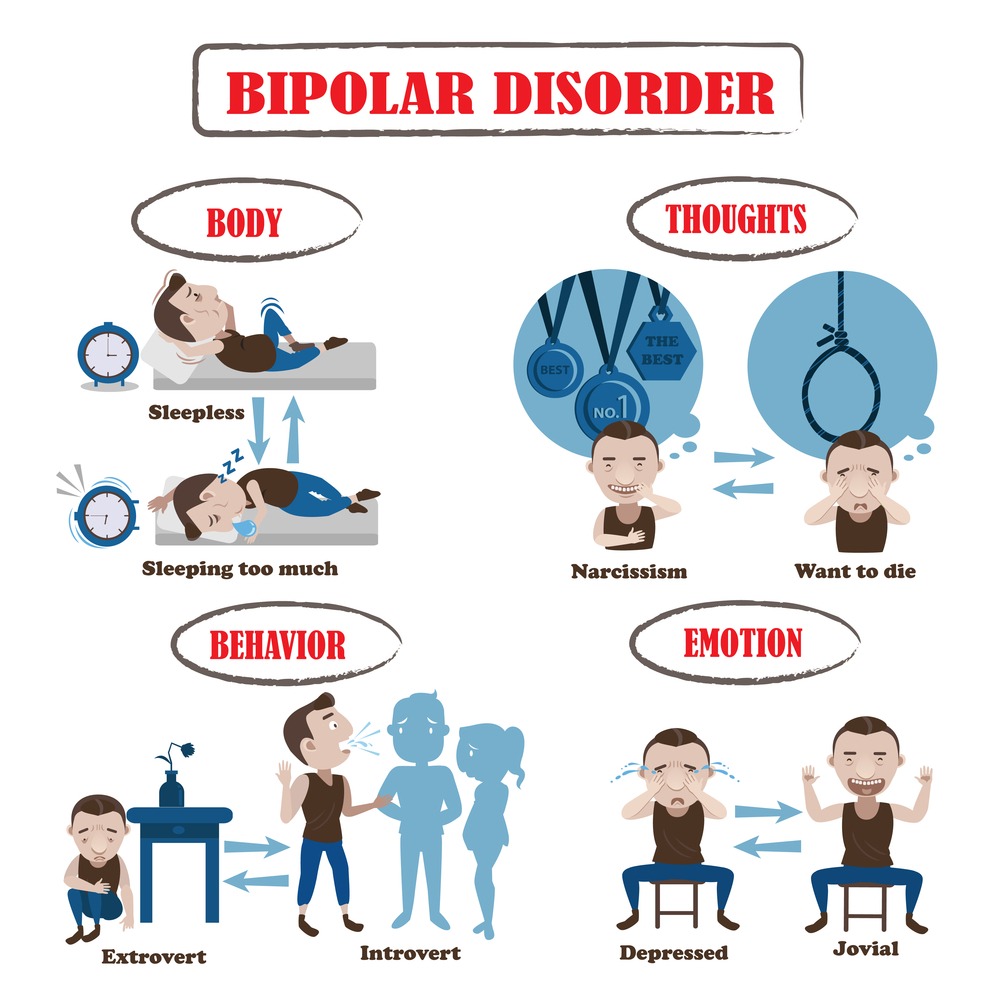Bipolar disorder is indeed considered a disability under certain circumstances. According to the Americans with Disabilities Act (ADA), a condition like bipolar disorder can be classified as a disability if it significantly limits one or more major life activities. This classification means individuals with bipolar disorder are protected from discrimination and may be entitled to reasonable accommodations in workplaces, schools, and other institutions.

The impact of bipolar disorder on an individual’s daily life can be profound and varied. Symptoms such as extreme mood swings, depressive episodes, and manic phases can make sustaining employment, maintaining relationships, and handling routine tasks challenging. These challenges make it essential to understand bipolar disorder’s status as a disability and the rights and accommodations available.
Navigating the complexities of mental health conditions like bipolar disorder is crucial for both those affected and the people around them. Proper recognition and support can lead to better disorder management and a more inclusive society. It is, therefore, vital to stay informed about the implications of bipolar disorder being classified as a disability and the resources available to those who need it.
Defining Disability and Bipolar Disorder
Disability and bipolar disorder intersect in complex ways, impacting legal protections and daily life. Understanding the characteristics of bipolar disorder and the criteria for disabilities is crucial. The Americans with Disabilities Act (ADA) provides key insights into this topic.
What Qualifies as a Disability?
A disability is defined by limitations in performing major life activities due to physical or mental impairments. Mental health conditions like bipolar disorder can qualify if they impact work or daily functions.
Key criteria include:
- Mental or physical impairment affecting life activities
- Restrictions in performing tasks such as working, thinking, or communicating
Legal protections ensure individuals with disabilities receive necessary accommodations and are protected from discrimination. The ADA is vital in ensuring these civil rights are upheld.
Characteristics of Bipolar Disorder
Bipolar disorder, also known as manic depression, is a mental health condition marked by extreme mood swings. These mood episodes can impact an individual’s function in several ways.
Main symptoms include:
- Manic episodes: Elevated mood, increased energy, pressured speech, and grandiose ideas
- Depressive episodes: Low energy, feelings of hopelessness, and poor concentration
- Cyclothymia: Milder form with less intense symptoms
Understanding these characteristics helps recognize the disorder’s profound impact on daily living and work.
Bipolar Disorder and the ADA
The Americans with Disabilities Act (ADA) offers critical legal protections for those with bipolar disorder. Under the ADA, bipolar disorder is recognized as a mental impairment that can severely limit life activities.
Key points:
- Legal protections for employees with bipolar disorder
- Requirements for employers to provide reasonable accommodations
- Protection from workplace discrimination
Hamilton Long-Term Disability Lawyers can assist individuals wrongfully denied long-term disability due to bipolar disorder, ensuring their civil rights are maintained. The ADA ensures those with bipolar disorder receive needed support and protection.
Bipolar Disorder and Disability Benefits
Individuals with bipolar disorder may be eligible for various disability benefits. These benefits provide financial support and workplace accommodations to improve their quality of life.
Social Security Benefits and Eligibility
The Social Security Administration (SSA) evaluates applications for disability benefits stemming from mental health conditions, including bipolar disorder. To qualify, individuals must meet specific criteria, such as experiencing severe mood swings, depression, or manic episodes that impact their ability to work. These symptoms must lead to considerable functional impairments in social settings, work, or daily activities.
Applicants must submit comprehensive medical records documenting the diagnosis and effects on their mental functioning. The SSA might require details about hospitalizations and the condition’s impact on energy, sleep, goal-directed activities, and daily functioning. Evaluations often include the individual’s residual functional capacity (RFC) and their ability to maintain employment.
Applying for SSI or SSDI Benefits
Applying for Supplemental Security Income (SSI) or Social Security Disability Insurance (SSDI) benefits requires a thorough understanding of the process. Applicants need to provide extensive documentation, including medical evidence and work history. Both SSI and SSDI have distinct eligibility requirements.
SSI is based on financial need and not on work history. SSDI, however, is available to individuals who have paid social security taxes through their employment. Additionally, detailed mental health therapy records and assessments of functional impairments play a crucial role in the application process.
The application process can be lengthy; it may involve initial rejections, followed by appeals. Consulting a disability lawyer specializing in mental health conditions can significantly improve the chances of a successful claim.
Workplace Accommodations and Protections
The Americans with Disabilities Act (ADA) mandates that employers provide reasonable accommodations to employees with bipolar disorder. These accommodations may include flexible work hours, reduced workloads, or time off for medical appointments. Employers must ensure these adjustments do not impose undue hardship on business operations.
Employees with bipolar disorder are protected against discrimination and have the right to ask for modifications that help them perform their job duties. Accommodations might involve setting up a quiet workspace to limit stress and distractions or allowing for remote work options.
Ensuring compliance with legal protections helps maintain equal rights and productivity in the workplace, aiding employees in managing depressive and manic episodes effectively.




